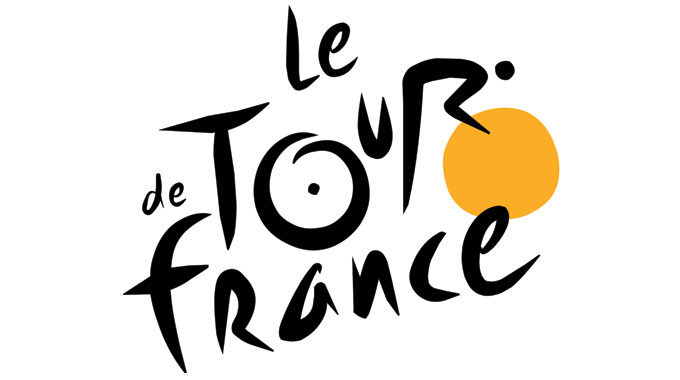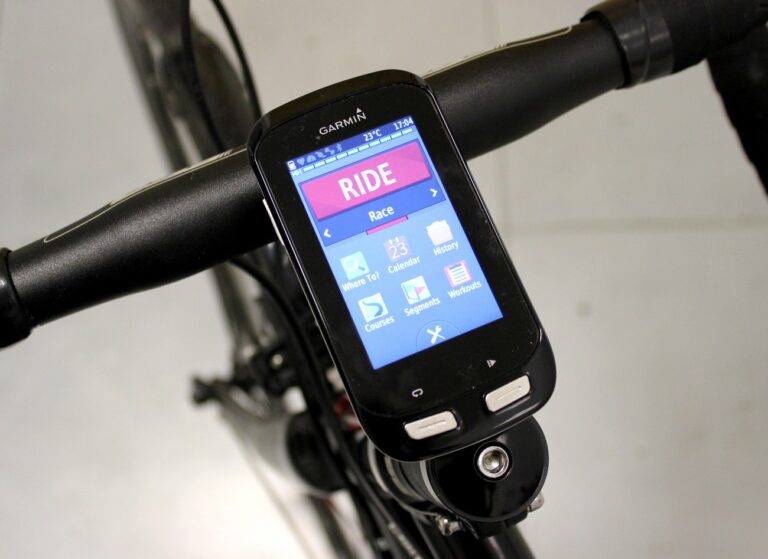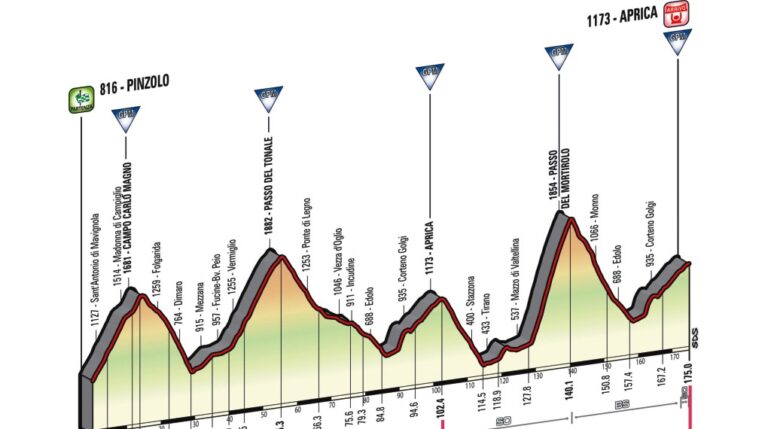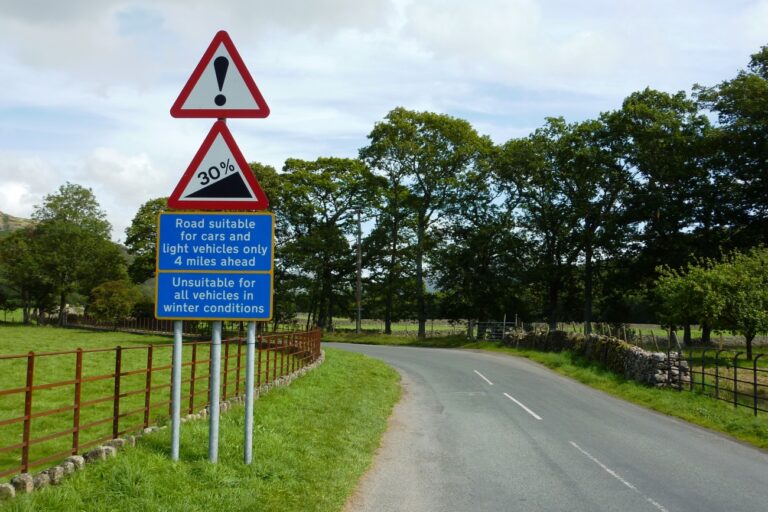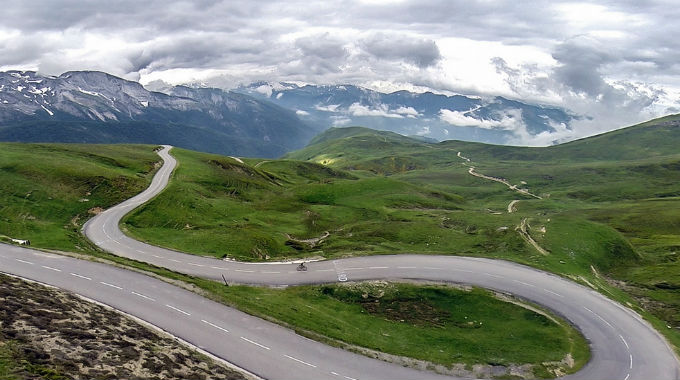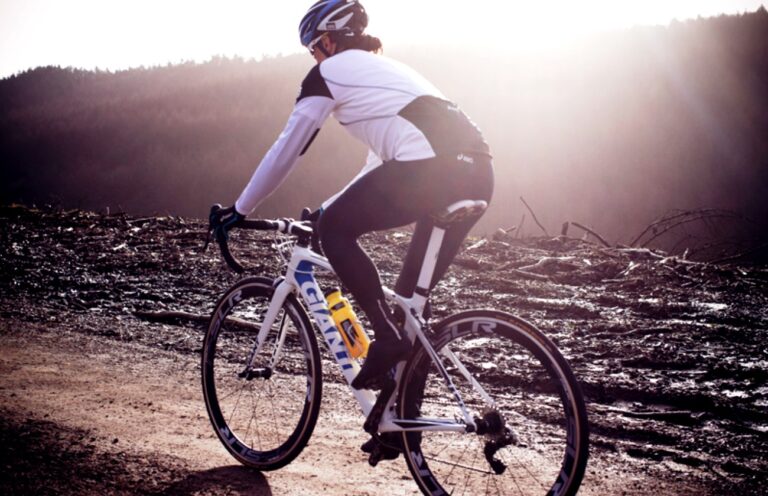Iconic summit finishes, less individual time trials – just one, covering 13.7km, in fact – cobbles and intriguing finales including the Mur de Huy and a return to Alpe d’Huez were confirmed at the 2015 Tour de France route presentation.
Testing stages feature from the off at a race set to roll out of Utrecht in the Netherlands on Saturday July 4 next year, after organisers ASO confirmed the route at the Palais des Congres this morning.
Tackling 3,344 kilometres in total, the race will pass through three countries, tackling 26 major climbs in all.

A short 13.7km time trial will decide the destination of the first yellow jersey in the Dutch city before North Sea winds are set to batter the peloton on the first road stage, which finishes on the man-made island of Neeltje Jans along roads used for the World Ports Classic.
In welcoming the Utrecht Grand Depart, organisers also paid tribute once more to this year’s Yorkshire start, saying: “The British supporters, and the teams of Welcome to Yorkshire were truly exceptional. They were magnificent.
“This Grand Depart will stay forever embedded in the Tour de France.”
Utrecht promised to follow Yorkshire’s lead, announcing a 100-day programme of events in the build-up to next year’s Grand Depart.
Following a start in the Netherlands next year, the race will also travel through Belgium before making its way into France for the first time on stage four.
Stage three could cause early problems and will have the likes of Alejandro Valverde (Movistar) and Dan Martin (Garmin-Sharp) licking their lips should they take to the start, with a conclusion atop the Mur de Huy – famous as the brutal final climb at La Fleche Wallonne.
With the race heading through Belgium and into France, it passes through more Classics territory en route to the first French finish town with cobbled secteurs returning for the second consecutive year.
The 221km stage features seven sections of pavé in total before finishing in Cambrai, with race director Christian Prudhomme promising the race will ‘shake, rattle and roll’ on the Paris-Roubaix cobbles.
The peloton then races through northern France, taking in coastal towns such as Le Havre.
The peloton’s penultimate day in the north, before a long plane transfer down south ahead of the first rest day, features another steep stage finish on the Mur de Bretagne – Cadel Evans (BMC Racing) having won there in 2011.
The only other race against the clock arrives on stage nine, into Vannes, after organisers confirmed the unusual move of a mid-race team time trial.
The second week takes in the Pyrenees, where Vincenzo Nibali (Astana) put the seal on his phenomenal victory this year, with summit finishes on the Col de la Pierre St Martin, Cauterets and Plateau de Beille.
A stage finish in Gap, where Rui Costa soloed to victory in 2013, is among the transitional stages before the final week tackles the Alps – and the pivotal ascent of Alpe d’Huez on the penultimate day.
La Toussuire returns, three years after Chris Froome’s infamously attacked team leader and yellow jersey Bradley Wiggins in 2012 before being called back by his team.
The route from Saint-Jean-de-Maurienne to La Toussuire will also serve as this year’s Etape du Tour route, offering the chance for sportive riders to tackle the same iconic climb on Sunday July 19.
And then the 21 hairpins of Alpe d’Huez will see the GC men battle for supremacy and the final chance to get their hands on the yellow jersey before another long plane transfer and the traditional finish on the Champs-Elysees.
Prudhomme also confirmed La Course would return on the final day, after its successful introduction last year when Marianne Vos sprinted to victory.
In announcing the route, organisers also confirmed a new points distribution on the nine flat stages on this year’s race, with the winner now rewarded with 50 points and runner-up only 30.
The rule will be a boost to Mark Cavendish (Omega Pharma-Quickstep) and Marcel Kittel (Giant-Shimano), with stage wins likely to play a more important role than just the sheer consistency which has helped Peter Sagan to a hat-trick of successes.
Both Cavendish and Kittel were at the presentation, alongside Vincenzo Nibali, Thibaut Pinot, Jean-Christophe Peraud, Alexander Kristoff and Tony Gallopin.
Cadel Evans was also invited on stage, with the Australian – winner in 2011 – set to retire from the professional peloton in January.
Tour de France 2015: route
Saturday July 4: stage one – Utrecht (NL) 14km ITT
Sunday July 5: stage two – Utrecht (NL) to Zelande (NL) 166km
Monday July 6: stage three – Anvers to Huy (BE) 154km Tuesday July 7: stage four – Seraing (BE) to Cambrai 221km
Wednesday July 8: stage five – Arras to Amiens 189km
Thursday July 9: stage six – Abbeville to Le Havre 191km
Friday July 10: stage seven – Livarot to Fougères 190km
Saturday July 11: stage eight – Rennes to Mûr-de-Bretagne 179km
Sunday July 12: stage nine – Vannes to Plumelec 28km TTT
Monday July 13: rest day
Tuesday July 14: stage ten – Tarbes to La Pierre Saint-Martin 167km summit finish
Wednesday July 15: stage 11 – Pau to Cauterets 188km
Thursday July 16: stage 12 – Lannemazen to Plateau de Beille 195km summit finish
Friday July 17: stage 13 – Muret to Rodez 200km
Saturday July 18: stage 14 – Rodez to Mende-Montée Laurent Jalabert
Sunday July 19: stage 15 – Mende to Valence 178km
Monday July 20: stage 16 – Bourg-de-Péage to Gap 201km
Tuesday July 21: rest day
Wednesday July 22: stage 17 – Digne-les-Bains to Pra-Loup 161km summit finish
Thursday July 23: stage 18 – Gap to Saint-Jean-de-Maurienne 185km
Friday July 24: stage 19 – Saint-Jean-de-Maurienne to La Toussuire 138km summit finish
Saturday July 25: stage 20 – Modane to L’Alpe d’Huez 110km summit finish
Sunday July 26: stage 21 – Sèvres to Champs-Elysees (Paris) 107km

